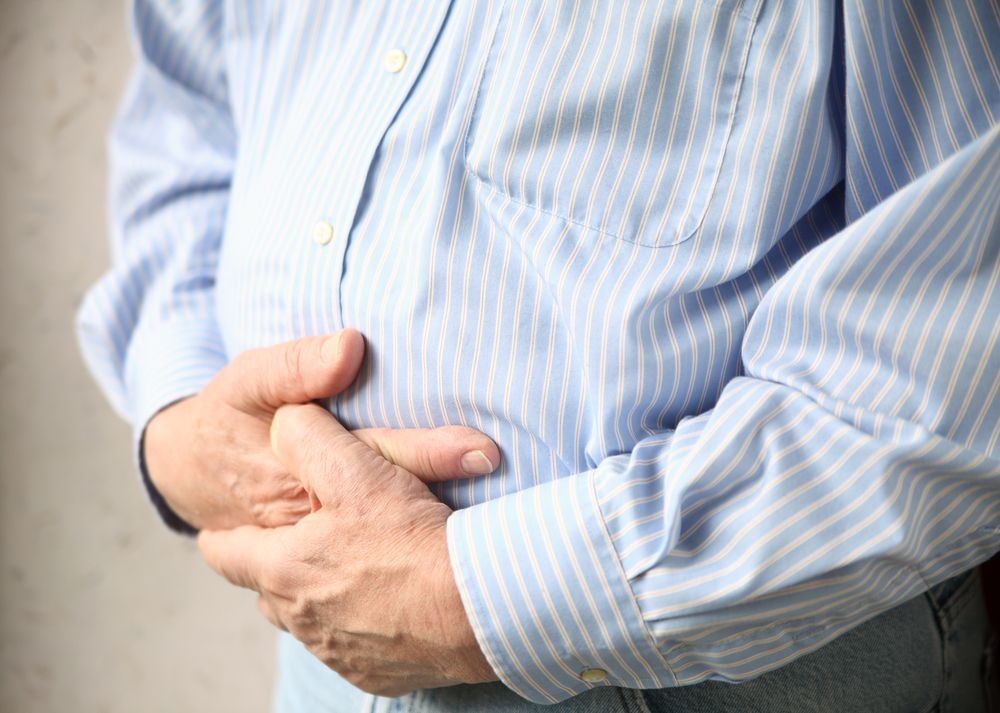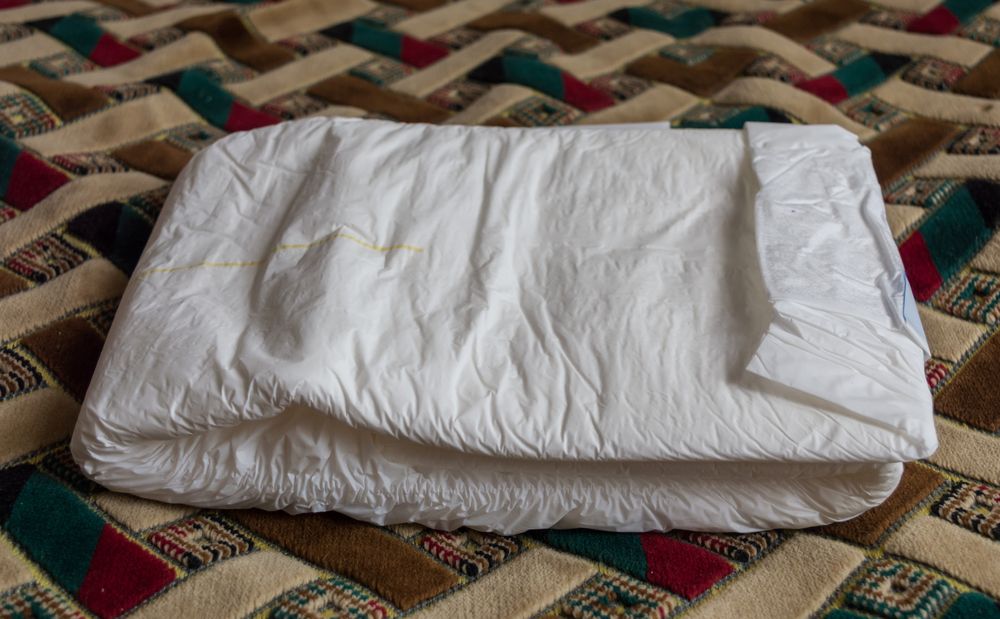Incontinence comes in two forms: urinary incontinence and bowel incontinence.
While people of all types can suffer from incontinence, this advice will be tailored toward cisgender males. This is important as some conditions may specifically affect the prostate or hormones, and proper treatment can vary. (Learn More — Male Incontinence Overview)
Medications to treat urinary incontinence include mirabegron, anticholinergics, and alpha blockers. The appropriateness of these medications, as with any treatment, depends on the particular patient and their needs.(Learn More — Medications to Treat Urinary Incontinence)
There are some products and devices that can help with urinary incontinence, such as pads or diapers for leakage and catheters to relieve pressure and empty the bladder. (Learn More — Other Products for Urinary Incontinence)
If your doctor determines you need medication for bowel incontinence, these generally come in two forms: antidiarrheals (primarily for diarrhea) and laxatives (primarily for constipation). Some of these medications are generally okay for long-term use, while others should only be used in the short term or specifically for severe symptoms. (Learn More — Medications to Treat Bowel Incontinence)
There are fewer products that can help with bowel incontinence, but diapers and special pants can be purchased to avoid embarrassment if you cannot get to the bathroom in time. While many people are reluctant to use such products, they can greatly increase mobility and reduce the risk of an obvious accident. (Learn More — Other Products for Bowel Incontinence)
Male Incontinence Overview
It has been estimated that 3.4 million men in the United States suffer from urinary incontinence. This is in addition to the many men who suffer from bowel incontinence, where a person has trouble controlling their bowel movements.
There are several types of urinary incontinence.
- Stress incontinence: This is when your bladder may leak urine when under physical stress, such as when lifting heavy objects, coughing, or otherwise exerting yourself.
- Urge incontinence: This is caused by the bladder contracting suddenly and without an easily foreseeable reason. This can cause an immediate urge to urinate, often so sudden and immediate that you won’t be able to make it to the bathroom.
- Mixed incontinence: This is when a person has to deal with a combination of stress and urge incontinence
- Overflow incontinence: People with overflow incontinence have difficulty emptying their bladder when they use the restroom, often leaking some urine when it seemed like no more would come out, and they have already began to pull up their pants and underwear.
Bowel incontinence, which a person can have on its own or mixed with some level of urinary incontinence, is characterized by some combination of constipation and diarrhea.
Notably some people only have a bowel movement three times or less per week but are still healthy. Bowel incontinence is characterized by discomfort and a feeling that you lack control over your bowel movements.

There are a number of medications and products that can help with incontinence. These medications should generally be used in conjunction with lifestyle changes. In some cases, surgery is required to fully address the issue.
Medications to Treat Urinary Incontinence
Once your doctor has determined that medication could be a good fit to treat your urinary incontinence, there are several options to choose from.
- Mirabegron (Myrbetriq): Mirabegron can help to control an overactive bladder. It generally takes about eight weeks to feel its full effect.
It doesn’t cure your bladder problems, so do not simply stop taking it if your incontinence goes away; that just means the medication is working well. It works by relaxing the bladder, helping primarily with urge incontinence.
Side effects are usually mild. They include headaches and joint pain, but they can sometimes be serious enough to warrant contacting your doctor. - Anticholinergics (Ditropan XL, Detrol, Enablex): Generally a good fit for urge incontinence, anticholinergics help to increase bladder capacity and/or reduce bladder contractions. They can be notably helpful in reducing bed wetting.
Anticholinergics can cause dry mouth and facial flushing. If you experience more serious symptoms, such as hallucinations or blurred vision, you may be experiencing an overdose. An overdose warrants immediate medical attention. - Alpha blockers (Flomax, Rapaflo, Cardura): Alpha blockers relax certain muscles in the bladder and prostate, aiding in urination. They can be especially helpful to those whose urinary problems stem from an issue with the prostate.
Alpha blockers can have a number of side effects. They can make certain medications more or less effective, so make sure to mention any drugs you are taking to any prescribing doctor. Interestingly, alpha blockers sometimes have the positive effect of reducing LDL cholesterol, commonly called “bad” cholesterol.
Medication is not always the solution needed for urinary incontinence. A diet change can sometimes dramatically reduce or completely erase symptoms.
Some conditions that cause urinary incontinence, such as urinary tract infections, may only require antibiotics to treat and then go away completely. Other times, surgery or other more extensive treatments may be needed.
Other Products for Urinary Incontinence
Urinary incontinence can be a major inconvenience and embarrassment, even for those whose symptoms are being treated with medication. Many adults are reluctant to try certain things due to stigma associated with them, but pads and adult diapers can really help people to regain a sense of control.
Adult diapers are an option, and these are much more discreet nowadays. Incontinence pads, which are less bulky and even more subtle than adult diapers can absorb leakage without embarrassing stains on pants or underwear.

Pads and diapers can be great for those who frequently leak after using the restroom or during periods of activity. In addition to preventing staining, they can prevent irritation and rashes.
A more serious measure exists in the form of an external catheter, which is rolled over the penis (not unlike a condom) and catches urine into a bag. This bag can be hung over your bed at night or strapped to your body during the day.
Some people might benefit more from intermittent catheterization, where a catheter is inserted through the urethra and into the bladder, helping to empty it at scheduled times.
In either case, talk to a doctor to see which option may work best for you. Your doctor can help ensure these are done safely and hygienically.
Medications to Treat Bowel Incontinence
For bowel incontinence, an important element of your treatment will be diagnosing whether you are suffering from fecal impaction. This is when a collection of hardened stool blocks part of your rectum, leading to a host of uncomfortable issues.
Fecal impactions are generally relatively easy, if uncomfortable, to solve. If you do not have fecal impaction or if problems persist after your fecal impaction is resolved (generally via an enema or your doctor carefully breaking it up by hand), medications may be deemed appropriate.
Medications that can be used to help with bowel incontinence include:
- Antidiarrheals (Imodium, Lomotil). Antidiarrheals help those with frequent diarrhea to regain some control. They make sure stool gets the water it needs and better absorbs ions. They also help your anal sphincter hold better at rest, which can help to prevent accidents.
- Laxatives. While often associated with relieving constipation, laxatives are medications that improve bowel function. They can sometimes even treat diarrhea.
Laxatives can be broadly put into four categories.- Fiber and fiber supplements (Metamucil, Citrucel): Fiber comes in two forms: soluble and insoluble. Soluble fiber (common in fruits and vegetables) dissolves in water and can form a gel when water is added. Insoluble fiber (common in whole grains and cereals) does not dissolve, absorbs water, and can add bulk to stools.
Add fiber slowly to your diet. Fiber (usually insoluble fiber) can cause gas problems. - Osmotic laxatives (MiraLAX, Kristalose, Constulose): These laxatives work by having you ingest poorly absorbed compounds. They draw water into the small intestine and colon, and increase stool bulk.
- Stimulant laxatives (Correctol, Senexon): These are usually only good for severe constipation. They can be overused and lead to problems like fecal impactions.
Stimulant laxatives spur your muscles to move, improving your ability to pass a bowel movement. - Emollients (Colace, Surfak): Commonly called stool softeners, emollients soften your stool by flushing your bowels with more water. They are often prescribed for people who have undergone certain surgeries or who are recovering from childbirth. They work best as a short-term solution to constipation problems.
- Fiber and fiber supplements (Metamucil, Citrucel): Fiber comes in two forms: soluble and insoluble. Soluble fiber (common in fruits and vegetables) dissolves in water and can form a gel when water is added. Insoluble fiber (common in whole grains and cereals) does not dissolve, absorbs water, and can add bulk to stools.
Other Products for Bowel Incontinence
As with urinary incontinence, many men are embarrassed to use some of the genuinely helpful products that can give them more control when dealing with bowel incontinence.
Generally, the biggest concern people have with incontinence (but especially bowel incontinence) is being unable to use the bathroom in time and soiling themselves. While only medication or finding a way to otherwise tackle the underlying issue (such as with diet and lifestyle changes) can solve that problem, some products can help.
Special shorts or adult diapers for bowel incontinence exist, produced by a number of companies (like NorthShore and Viita). These obviously cannot stop you from having an accident, but they can often control the situation so your clothes are not ruined and your accident is not immediately obvious to those around you.
Coupled with a change of clothes carried in a bag (as with urinary incontinence), these can dramatically reduce embarrassment and help you travel more easily.
References
Urinary Incontinence: Symptoms & Causes. (April 2019). Mayo Foundation for Medical Education and Research (MFMER).
Urinary Incontinence: Diagnosis & Treatment. (April 2019). Mayo Foundation for Medical Education and Research (MFMER).
Bowel Incontinence. (May 2019). MedlinePlus.
Urinary Incontinence. (April 2019). MedlinePlus.
Stress Urinary Incontinence. (July 2019). MedlinePlus.
Medication. (October 2015). International Foundation for Gastrointestinal Disorders.
Mirabegron. (June 2018). MedlinePlus.
Alpha Blockers. (January 2019). Mayo Foundation for Medical Education and Research (MFMER).
How Does an External Catheter Help Male Incontinence? (April 2018). WebMD.
Men With Incontinence: Treating and Managing. (August 2017). WebMD.
Concerned About Constipation? (December 2018). National Institute on Aging.
Over-the-Counter Laxatives for Constipation: Use With Caution. (June 6, 2017). Mayo Foundation for Medical Education and Research (MFMER).
Medicines to Treat Constipation. (May 2019). WebMD.
Fecal Impaction. (July 2019). MedlinePlus.
Medications to Treat Bed-wetting. National Kidney Foundation.


